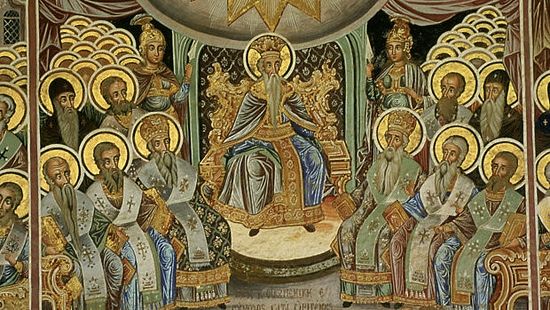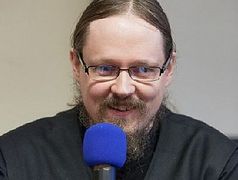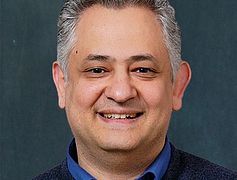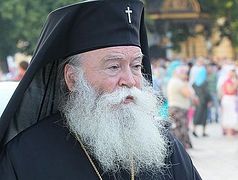Source: Huffington Post
May 12, 2016
CHRIST IS RISEN!
With the journey to Pascha having reached its ultimate destination at the glorious Resurrection of the Lord, the Orthodox Church has now embarked on the Pentecostarion period.
Pentecost (the descent of God the Holy Spirit in Jerusalem - Acts 2:1-11) will be celebrated on June 19th. This year’s feast will have added significance because it will mark the commencement of the Holy and Great Council on the island of Crete in Greece.
Shepherded by the Ecumenical Patriarchate and His All-Holiness Ecumenical Patriarch Bartholomew, the Council will bring together Primates from the fourteen autocephalous Orthodox sister churches to deliberate on various matters under the guidance of the Holy Spirit.
Following January’s confirmation of the Council’s convocation, many articles in multiple languages have been published about the Council, its agenda and supporting pre-conciliar documents.
There have been thoughtful essays (e.g., on Hesychasm and Theology by Professor George Mantzaridis) written by clergy and lay, men and women, Orthodox and not. As Pentecost Sunday approaches, additional articles will focus on this historic event. This is a good thing. Well-intentioned proposals (including a number by His Eminence Metropolitan Hierotheos of Nafpaktos and Agiou Vlasiou) to improve the pre-conciliar documents should be welcomed.
Contributions should be consistent with Orthodox patristic theology, developed with discernment, prayer and an ecclesiastical phronema (mindset). But the Holy and Great Council is also an opportunity for individuals and/or groups to promulgate certain innovative agendas. One such issue is Orthodox - Catholic unity.
A recent essay, for example, argued that the April meeting between Patriarch Bartholomew and Pope Francis (as well as Archbishop Ieronymos of Athens and All Greece) on the island of Lesbos was an attempt to move the “churches in the direction of unity ... [and] towards reconciliation.” Using a few hour meeting meant to bring attention and help refugees as a way to advance a certain Orthodox - Catholic narrative is telling.
Moreover, some leftist scholars are pushing particular perspectives on subjects related to this issue, including using “Church” to classify other Christian confessions (most notably Roman Catholicism), and baptism as it relates to the reception of non-Orthodox.
These are serious theological issues. They invoke zeal among believers. Interpretations - and the intentions behind them - matter. As do words. Reading various commentaries on the pre-conciliar documents brings to mind Mark Twain’s quote that, “The difference between the right word and the almost right word is the difference between lightning and a lightning bug.”
Some of these scholars, though, simply label and dismiss out of hand those who disagree with them as traditionalists, fringe, and sectarians. They use alarmist rhetoric to warn that unless bishops adopt a certain approach (theirs, obviously) the Church will be “hijacked by extremists”.
In attempting to repudiate Orthodox extremists (as they identify them), some risk becoming extremists themselves. While the Church is certainly not anti-intellectual, endeavouring to understand Orthodox dogma and the writings of the Holy Fathers with the mind is markedly different than grasping it with the spirit. There is a danger in wrapping oneself in his own intellectual prowess that he may reject the warm embrace of an Orthodox phronema.
Closely connected to Orthodox - Catholic unity is the issue of “Church unity” which is instructive to illustrate the difference between academic knowledge and spiritual wisdom.
His Eminence Metropolitan Kallistos of Diokleia writes in his prominent book The Orthodox Church, “There are divisions among Christians, but the Church itself is not divided nor can it ever be“ (my emphasis).
Do Orthodox Christians not confess in the never-changing Creed belief in ‘One, Holy, Catholic, and Apostolic Church’? Is Christ not the Bridegroom of the Church? Did Orthodox Christians on Holy Thursday not hear the priest intone, as he carried Christ Crucified: The Bridegroom of the Church is fixed with nails to the cross? Is not the Church His Body?
Official recognition of another “Church” at the Holy and Great Council will steepen the slippery slope and encourage the misguided - and potentially dangerous - case for “Church unity”.
The indispensable building block for Christian unity is in matters of faith. Do Orthodox Christians not pray, in every Divine Liturgy, for the unity of the faith and for the communion of the Holy Spirit? Unity of the faith gives birth to communion in the sacraments - including baptism, and at the Lord’s Table above all.
Quoting Metropolitan Kallistos Ware again: “It is unity in faith that matters, not organizational unity; and to secure unity of organization at the price of a compromise in dogma is like throwing away the kernel of a nut and keeping the shell.”
It is the sacred task of Orthodox bishops, as overseers of the One, Holy, Catholic, and Apostolic Church to overlook extremists - on both ends of the theological spectrum - in order to separate the wheat from the chaff and ensure that decisions taken in Crete, and beyond, seem good to the Holy Spirit (cf. Acts 15:28).
Pentecost is a fitting feast to affirm the uniqueness of Orthodoxy: that the Orthodox Church is a saint-producing factory, that the Orthodox Church invites the faithful to experience their own personal Pentecost, that the Orthodox Church is the vehicle which drives man to holiness.
The production of saints has never ceased in the Orthodox Church, even in the present age: from The Saint of our Century, St. Nektarios the Wonderworker (+1920) to St. Porphyrios of Kafsokalyvia (+1991) and St. Paisios the Athonite (+1994), to the countless men and women who have reached theosis.
The Holy and Great Council is an opportunity for Orthodoxy to preserve - and proclaim - this Truth. Orthodox should not be reticent to engage other Christians but instead welcome the opportunity to speak the truth in love (cf. Eph 4:15), shining a spotlight on the rich teachings, holy traditions and sanctifying faith of the Orthodox Church.




